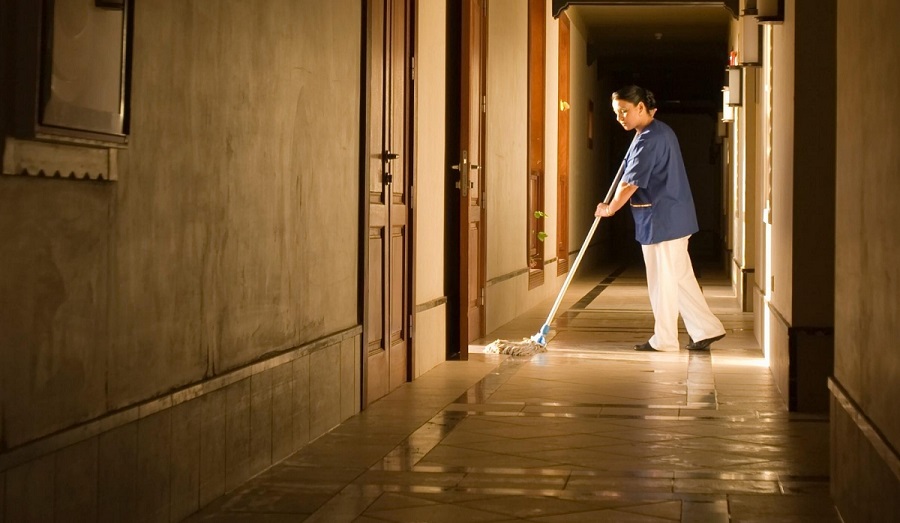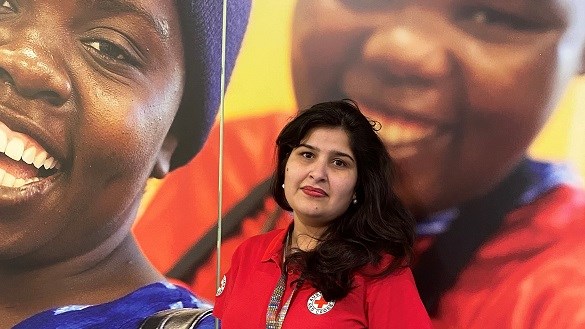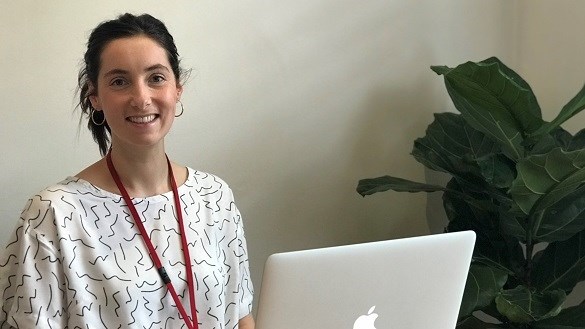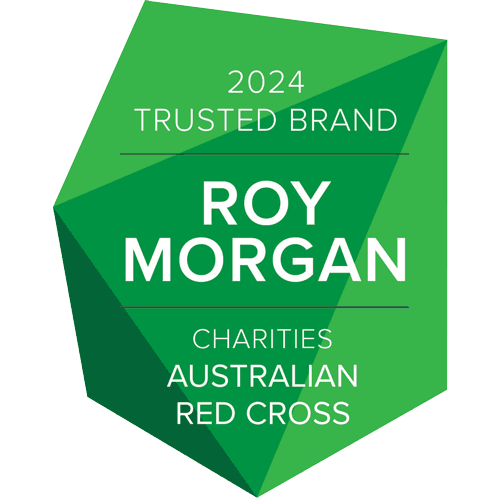Working on the frontline to end human trafficking
Modern slavery happens in Australia. Meet the people behind the scenes dedicated to supporting people who have been trafficked.
30 July 2020
We have supported over 440 people affected by slavery, forced marriage and trafficking over the last ten years.

On World Day Against Trafficking in Persons we join with the UN to put a spotlight on our first responders to human trafficking.
Rachna and Kahli are two of our Complex Caseworkers, working on the frontline supporting, counselling and seeking justice for people affected. Here Rachna and Kahli talk about their passions, inspirations and what drew them to this work.
What inspired or drew you to working with people who have been trafficked?

Rachna
“I come from a country where girls are married against their will and people are forced to sell their children due to extreme poverty. These people are generally unaware of their rights and have no support whatsoever.
“Working as social worker in Australia for the past few years, I have come across many such people and hearing their stories and experiences is really painful. Knowing that they have no idea at all of the support and the kind of services available makes me sad, however motivated at the same time, as I can be resourceful to such people. With my knowledge, expertise and experience I can work towards making their life better to a certain extent.”

Kahli
“I have the privilege of meeting people from all over the world, all with unique perspectives, cultures and lives. The best part of my work is making real connections with people. We meet people who have been through extreme hardship and suffering and who show such resilience to overcome injustice and eagerness to begin new chapters of their lives full of hope which is so inspiring to me.”
What is one of the most inspiring or difficult conversations you have had while working in this area?
Kahli
“Some of my most inspiring conversations have been with clients who act to bring awareness to the issue and become ambassadors for change. It astonishes me to see this level of strength and resilience in people who despite everything are willing to share their story and educate others.”
Rachna
“Working with a client from a South-Asian country came to be quite challenging. Whilst I have an understanding and insight into the culture and challenges faced by people in that part of the world due to my own background, reassuring the client that all would be fine was not easy. Going against parents wishes and leaving the house for the first time and speaking with the authority is not common in those countries.”
What does a day in your life that look like?
Kahli
“Every day is different which is a great perk of the job is. I do spend a lot of time liaising with other organisations and community services, making referrals or following things up. For example, currently with home learning I am speaking with a lot of schools to advocate for families on the program who may have specific needs for the children at home when the parents don’t speak English.
“Or I am contacting local faith groups to see what kind of social and relief supports they are providing during the COVID lock down. And making referrals and booking all sorts of appointments with clients, for instance with migration agents for assistance with visa concerns or counsellors to support clients on their healing journeys.”
What is your top tip or practice for self-care?
Rachna
“I would suggest spending more time with your family, friends and your loved ones. Eat healthy. Engage yourself in activities that you love such as cooking, listening music. Indulge in reading good books. Do something that involves the entire family. Think positive and stay happy.”
Kahli
“Connecting with amazing colleagues! Even though we are not in the office at the moment, I find it really beneficial being able to reflect and debrief with my team or just have a laugh.”
How has COVID-19 impacted on your clients? What are some of the changes that you have noticed?
Kahli
“COVID-19 has been a real challenge for our clients who are often in Australia without family or community, it has really added to peoples’ isolation and this can impact peoples’ mental health. Many of our clients also do not speak English which means information may be slower to reach them and this can add to their fear around the virus.”
Tell us about how you work with your clients to help them rebuild a sense of control.
Rachna
“I work with clients who enter our program having suffered severe trauma, resulting in very low self-esteem. However, working closely with our clients, supporting them with their holistic needs, I have observed their transition in becoming independent and confident with their future life planning. With one client in particular, who had engaged positively with [previous] caseworker support, I observed a demonstrated transition in her strength and resilience. Furthermore, a commitment to continuing her education, accessing supports to progress her recovery and work toward achievement of her aspirations. I have observed an increase in her confidence and competence in her abilities to navigate and access support independently.”
If you or someone you know is being exploited, help is available. Email national_stpp@redcross.org.au or find out more at Support for trafficked people.
Charity donations of $2 or more to Australian Red Cross may be tax deductible in Australia. Site protected by Google Invisible reCAPTCHA. © Australian Red Cross 2025. ABN 50 169 561 394
